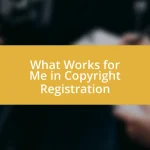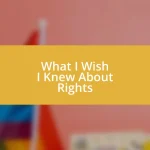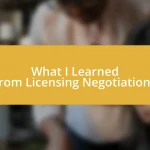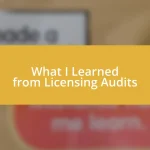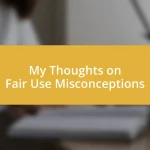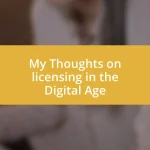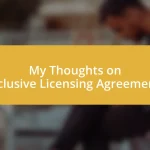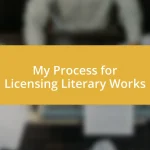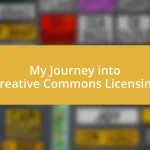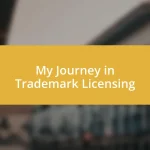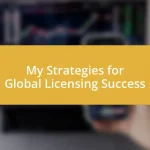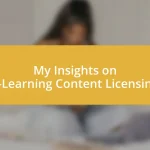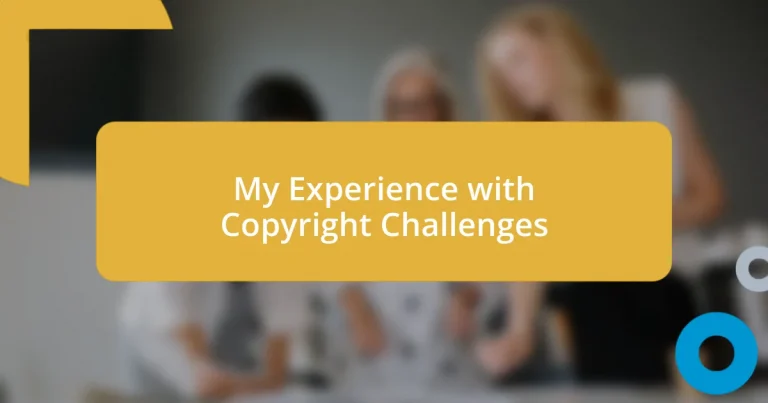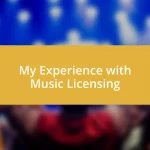Key takeaways:
- Copyright grants creators exclusive rights to their original works, encompassing various forms of creative expression beyond just books and music.
- Common copyright challenges include misattribution, fair use confusion, and the complexities of international copyright laws, highlighting the need for awareness and understanding.
- Effective strategies for resolving copyright issues involve meticulous documentation, utilizing copyright monitoring services, and seeking support from fellow creators.
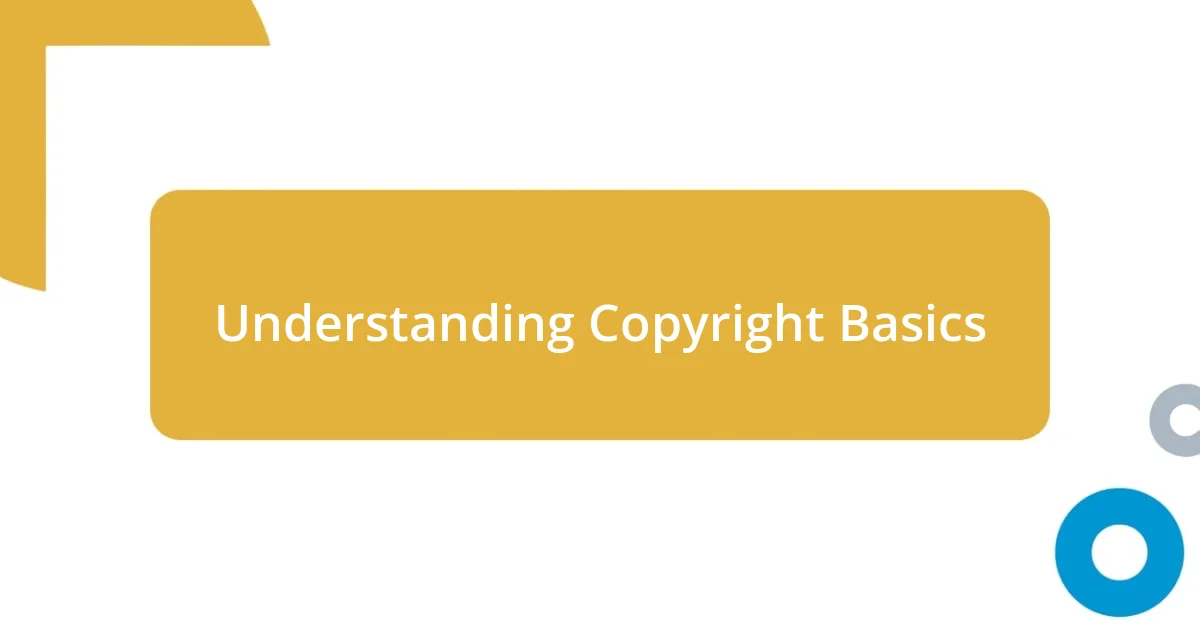
Understanding Copyright Basics
Copyright is a legal protection designed to give creators exclusive rights to their original works. I remember the first time I shared my artwork online; I felt such pride, but also apprehension. What if someone stole it? That fear is common among creators, highlighting just how crucial understanding copyright is.
Many people think copyright only applies to books and music, but it covers a wide range of creative expressions, from videos to software. Have you ever considered how much of your daily life is influenced by copyright? Each time you enjoy a song or watch a movie, copyright is at play, safeguarding the rights of those who brought these creations to life.
It’s important to note that copyright exists as soon as a work is created and doesn’t require registration, although registering can offer additional legal benefits. I once faced a situation where someone used my blog post without proper credit. It was frustrating to see my ideas represented without acknowledgment, which deepened my appreciation for the rights that copyright affords creators like me. Understanding these basics can empower you, ensuring your creative endeavors are respected and protected.
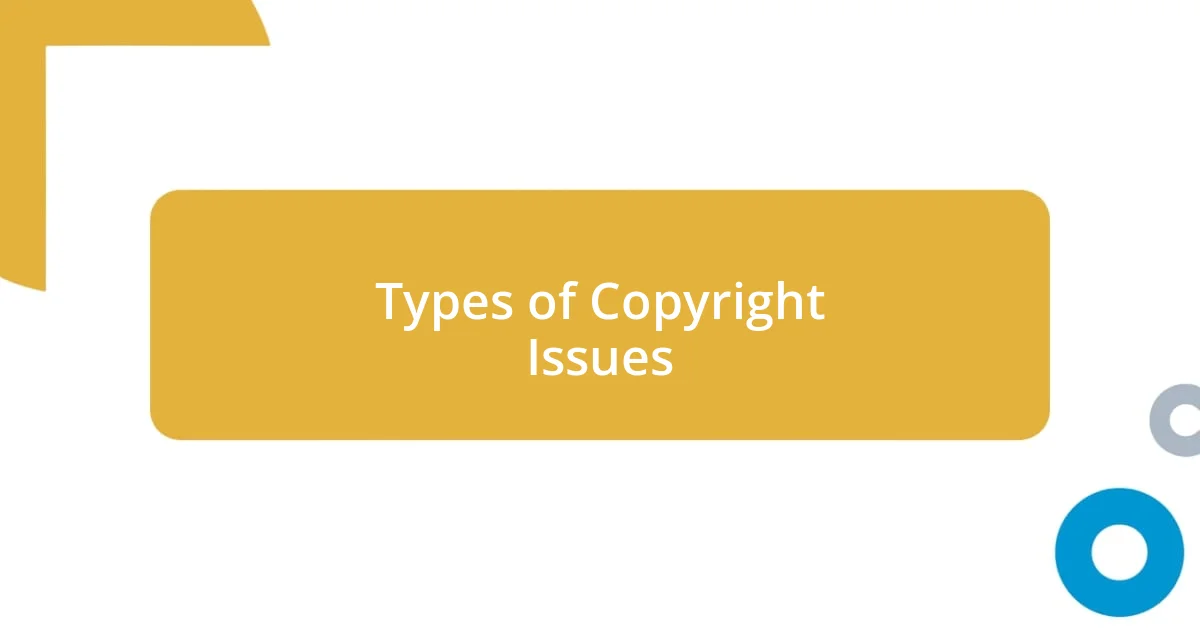
Types of Copyright Issues
Copyright issues can encompass a variety of scenarios that creators often encounter. Personally, I’ve faced misattribution, where my work was used without proper credit. It’s frustrating to see something you’ve poured your heart into being presented as someone else’s, highlighting the importance of attribution in our creative community.
Here are some common types of copyright issues:
- Infringement: Unauthorized use of copyrighted material.
- Plagiarism: Presenting someone else’s work or ideas as your own, even if you don’t infringe on copyright.
- Misattribution: Giving credit to the wrong creator or failing to acknowledge the original creator.
- Fair Use Confusion: Misunderstanding the limits of fair use for commentary, criticism, or education.
- Public Domain Misunderstandings: Assuming all old works are free to use without checking their copyright status.
I remember a time when I was unsure whether a brief quote from a book could land me in hot water. That anxiety pushed me to dig deeper into copyright laws, reinforcing my dedication to respecting creators’ rights. Each of these issues reminds us of the intricate dance between creativity and ownership, which is crucial for fostering an ethical artistic environment.
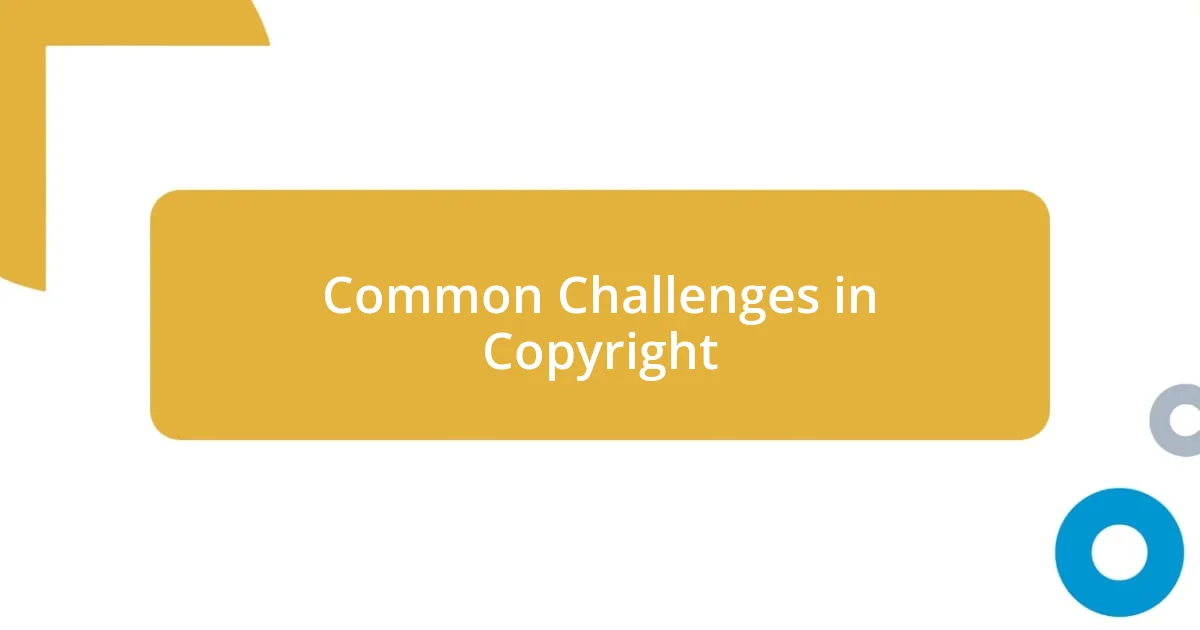
Common Challenges in Copyright
Navigating the world of copyright can be incredibly daunting, and I often find that creators face similar challenges. For instance, understanding the nuances of fair use can be tricky. Early in my writing career, I hesitated to use snippets from other authors’ works, worried I’d misinterpret what constituted fair use. It was only after extensive research that I realized fair use isn’t just a green light but rather a nuanced area requiring caution.
Another common challenge involves international copyright laws. When I shared my music online, I was unaware that different countries have various regulations. This often leads to confusion about whether a piece of content can be freely shared or modified. I once received a takedown notice for a remix I had created, and it was a wake-up call about how quickly copyright issues could escalate, even when intentions were good.
Lastly, there’s the challenge of enforcing copyright. Many creators, like myself, find it discouraging when facing infringements. The process of legal action can be time-consuming and expensive. So, it’s essential to weigh the emotional toll against the possibility of reclaiming rights over our creations.
| Challenge | Description |
|---|---|
| Fair Use Confusion | Understanding the complexities of what can be used without permission. |
| International Laws | Dealing with varying copyright laws across countries. |
| Enforcement Issues | Struggles in taking legal action against copyright infringement. |
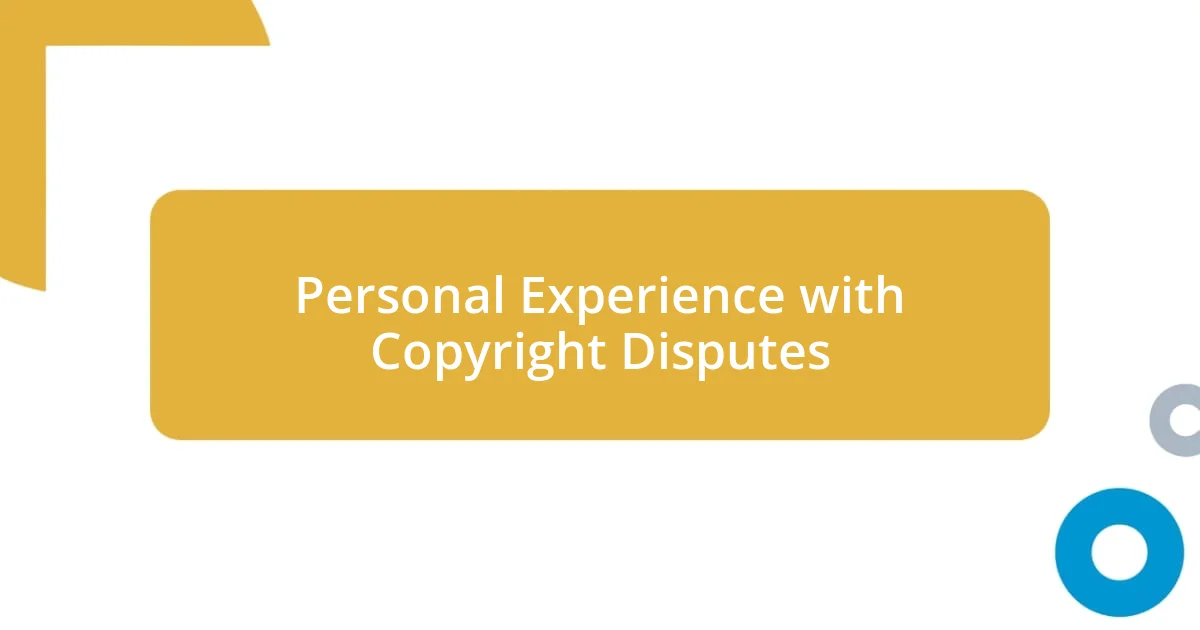
Personal Experience with Copyright Disputes
I remember the first time I had my work misappropriated; it stung deeply. A blog I followed had shared one of my illustrations but without any credit. It left me feeling invisible and undervalued in my own creative space. Have you ever felt that way? It’s disheartening to see something you crafted with passion and dedication treated as anyone’s for the taking.
Then there was the time I had to confront an infringement head-on. A local business used my music in a promotional video without asking. I experienced that mix of anger and helplessness, compounded by the fear of costly legal battles. After much deliberation, I decided to reach out and explain the situation, which resulted in them agreeing to license the track. This incident made me realize the power of communication and how sometimes, a simple conversation can lead to resolution.
Navigating copyright laws isn’t just about the legalities; it’s also about the emotional investment we have in our creations. When I encountered blurred lines with fair use, I couldn’t shake the feeling of anxiety. I used to ask myself, “Am I stepping on someone else’s toes?” Diving deeper into the intricacies of fair use provided me clarity, but it also highlighted how essential it is for creators to stand firm in protecting their work. Learning through these challenges has been an eye-opener and a reminder of why we must advocate for ourselves as artists.
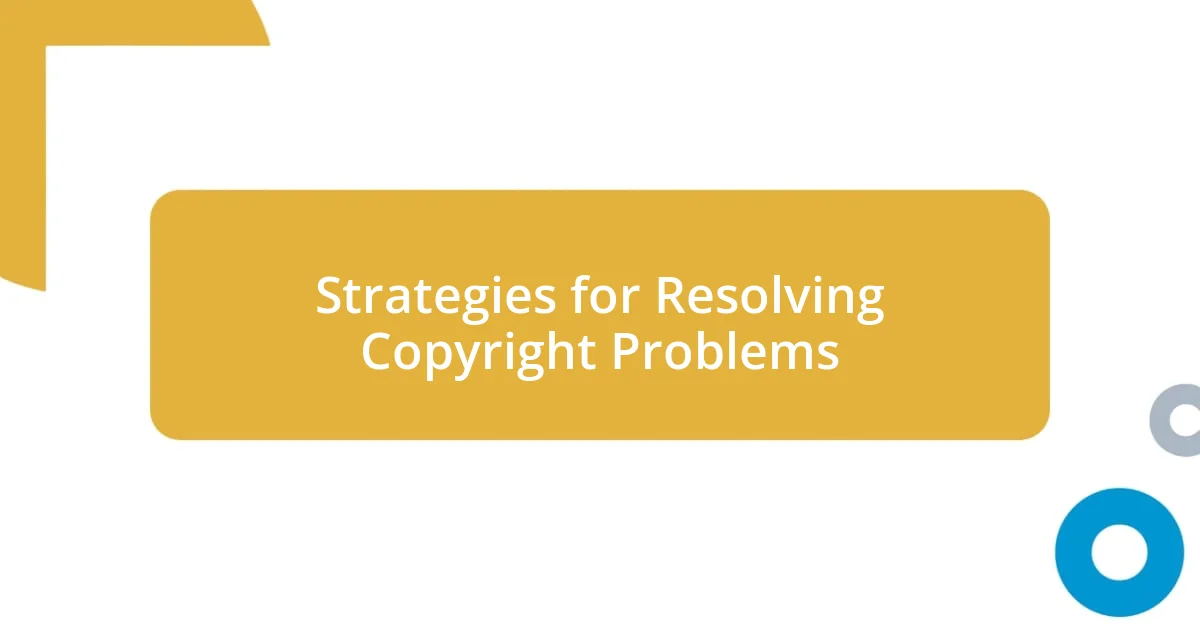
Strategies for Resolving Copyright Problems
When dealing with copyright problems, one effective strategy I discovered is to document everything meticulously. I can’t stress enough how important it is to keep track of your creative process, including drafts and revisions. This habit saved me during a dispute when I could prove I had created my work before others claimed it. Have you ever found yourself wishing you had solid proof of your ideas? I certainly have, and it’s a lesson I learned the hard way.
Another approach that worked wonders for me is leveraging online platforms designed for copyright protection. When I registered my music with a service that helps monitor unauthorized usage, I felt a sense of relief knowing that there was a system in place to alert me about potential infringements. It’s empowering to have that level of control. Isn’t it comforting to know you don’t have to go through this alone? These tools can help alleviate some of the stress that comes with worrying about whether someone might misuse your work.
Lastly, I’ve found that networking with fellow creators can provide both support and insight. When I faced a particularly tricky copyright issue, I turned to a community of artists who had tackled similar challenges. Their stories and advice not only armed me with strategies but also showed me I wasn’t isolated in this battle. Have you ever leaned on a group for guidance? The camaraderie was invaluable and reinforced the idea that we can tackle copyright challenges together, making the journey a little less intimidating.
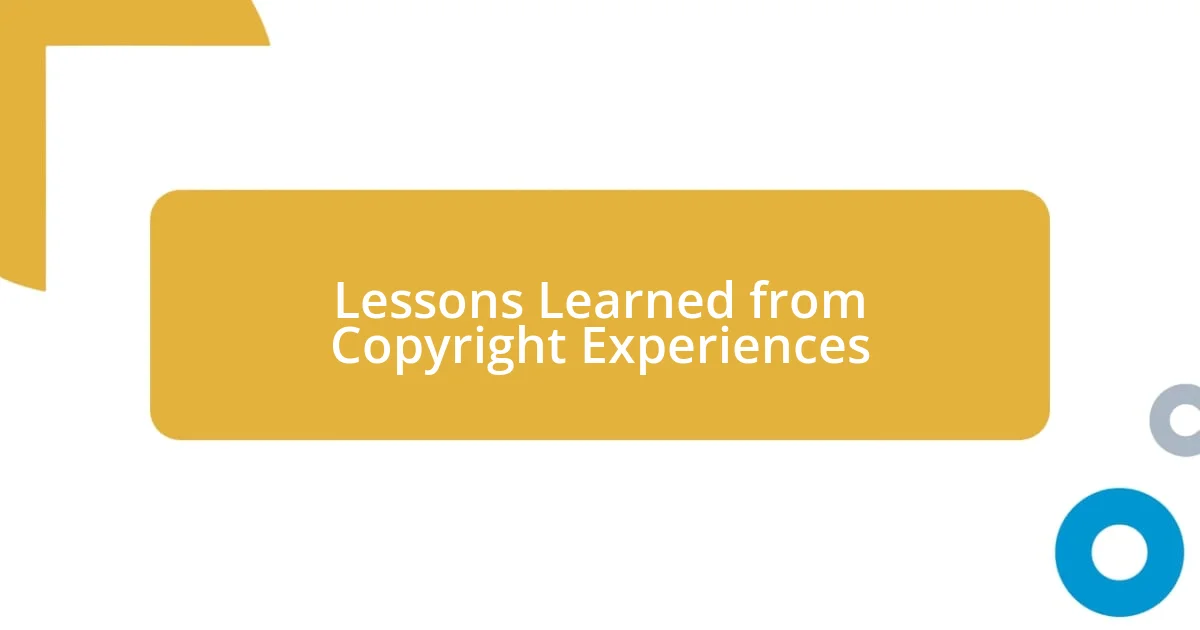
Lessons Learned from Copyright Experiences
The most significant lesson I’ve learned from my copyright experiences is the importance of vigilance. There was a time when I casually shared my work on social media, thinking it was safe. But when I discovered someone had snatched my image and used it for a promotional campaign without my permission, it hit me hard. This experience taught me that just because something is online doesn’t mean it’s protected—always be aware of your digital footprint.
Handling infringements taught me the value of patience and understanding. I recall a situation where a friend accidentally used a snippet of my writing in their project, completely unaware of the implications. Instead of reacting with anger, I chose to explain the situation calmly, highlighting the importance of copyright. This conversation not only salvaged our friendship but also reaffirmed the necessity of open dialogue regarding creative rights. Have you ever found that discussing the issue rather than confronting it can lead to unexpected resolutions?
Lastly, I’ve come to appreciate the significance of seeking professional advice. Prior to my consultations with a copyright attorney, I was often overwhelmed and unsure of my rights. However, one particular meeting illuminated the multiple layers of copyright law I had overlooked. I learned that understanding these complexities can empower me as a creator. How often do we underestimate our worth? Gaining this knowledge was transformational, not only for protecting my work but for building confidence in my creative endeavors as well.
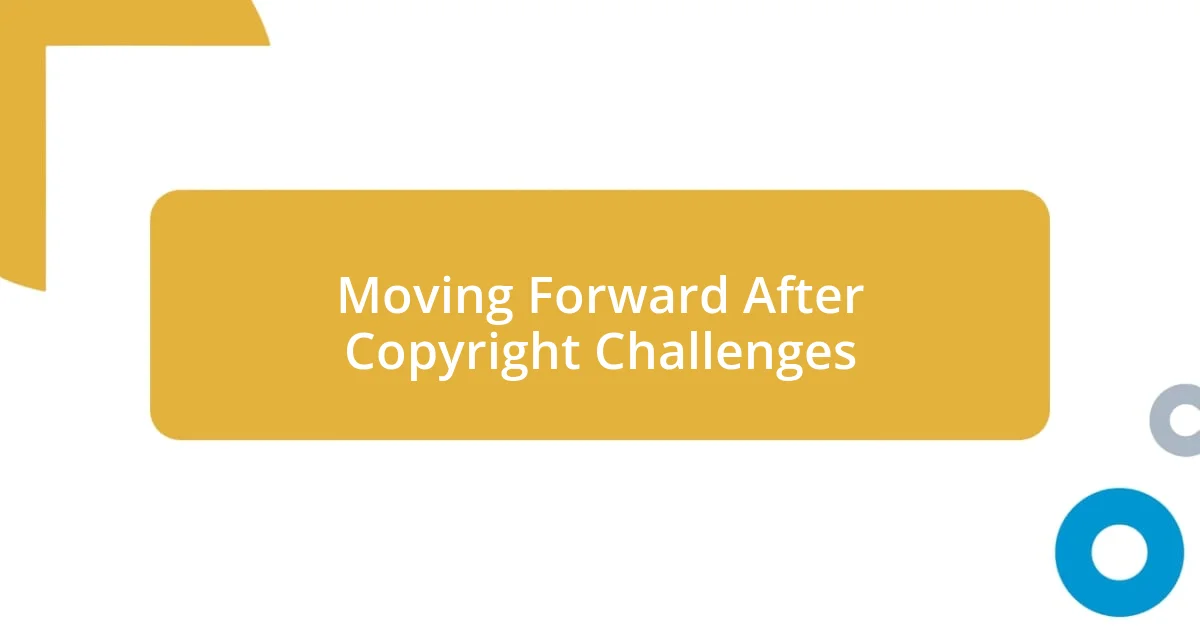
Moving Forward After Copyright Challenges
When it comes to moving forward after copyright challenges, I believe resilience is key. After addressing a significant infringement against my work, I realized that setbacks can serve as powerful lessons. Instead of dwelling on losses, I focused on refining my skills and elevating my craft. It’s fascinating how adversity can spark creativity, isn’t it? I found myself experimenting with new styles and techniques, transforming my frustration into fuel for growth.
I also learned that sharing my experiences with others can be a vital part of recovery. After navigating a distressing copyright dispute, I took to social media to discuss my journey—complete with the ups and downs. The responses I received were overwhelming. Many creatives reached out to offer their support and shared similar stories. Have you ever been surprised by the connections you can forge through vulnerability? These conversations not only helped me heal but also created a sense of community that I didn’t know I needed.
Moreover, I discovered the importance of updating my strategies for protecting my work. Reflecting on my past experiences led me to revamp my copyright management practices. I implemented more stringent measures, such as watermarking my images and regularly checking for unauthorized use. It feels more secure knowing that I’m actively defending my rights. How often do we reconsider our protective strategies after a challenge? Each proactive step I took reassured me that I could turn the page on previous struggles and move forward with confidence.
